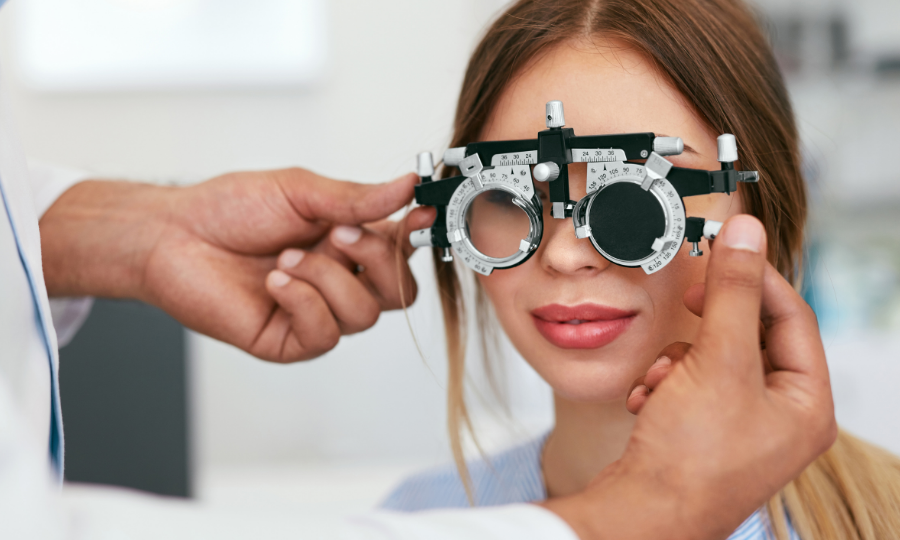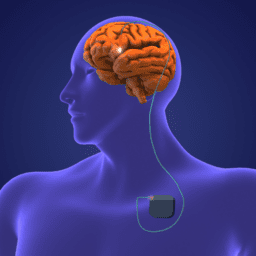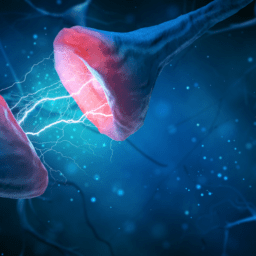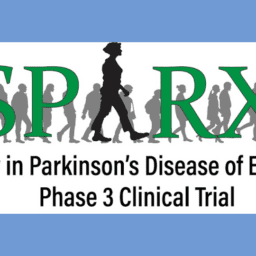The retinal age gap and Parkinson’s risk. The smallest DBS device ever developed. A World Parkinson’s Day flash mob. Neil Diamond’s music on Broadway. Here’s what’s new in the world of Parkinson’s this month.
PARKINSON’S ARTICLES
- West Virginia Governor Jim Justice recently signed a bill that will permit West Virginia University (WVU) to create a Parkinson’s registry. As a result, West Virginia will collect data that can help researchers better understand how many people are living with Parkinson’s and how scientists can better direct their efforts in order to find a cure or improve treatments. The effort is a collaboration between WVU, the West Virginia Parkinson’s Support Group, and the Michael J. Fox Foundation (MJFF).
- The Davis Phinney Foundation has welcomed nQ Medical, a digital biomarker discovery platform, as a new corporate partner. As part of the relationship, the Foundation has convened a panel of people with Parkinson’s to test and provide insights to nQ Medical’s “NeuroQWERTY” device, which monitors Parkinson’s progression and provides feedback that can help physicians tailor an individual’s treatment.
- Parkinson’s UK and Lancaster University released a 41-page report highlighting how pandemic restrictions considerably worsened Parkinson’s symptoms such as fatigue, anxiety, stiffness, sleep issues, and slowness of movement. Based on two UK-wide surveys (the first from April and May 2020; the second from August and September 2021), the report also showed that pandemic restrictions negatively impacted care partners.
- In a paper published in the journal Age and Ageing, researchers in China wrote that studying progressive changes on a person’s retina and determining their “retinal age gap” (the difference between a person’s retinal age and their actual age) can help scientists identify those who are at a high risk of developing Parkinson’s.
- Moussa Youdim, one of the first researchers to identify the genes that are impacted in the brains of people with Parkinson’s, will receive the 2022 Israel Prize in Life Sciences “for his pioneering, groundbreaking, scientific achievements in the field of neuropharmacology.” Youdim also developed the widely used Parkinson’s medications selegiline and rasagiline.
- PreciseDx, a digital pathology program developed by faculty at Mount Sinai to help detect breast and prostate cancer, can identify early signs of Parkinson’s with great accuracy, according to a recent study by researchers at Mount Sinai’s Icahn School of Medicine.
- In other AI news, research published in The Journal of Nuclear Medicine explains how scientists used a 3D deep convolutional neural network to extract deep metabolic imaging indices from certain PET scans, which allowed them to accurately differentiate between Parkinson’s and similar conditions, such as multiple system atrophy and progressive supranuclear palsy. The findings could help clinicians make more accurate, earlier diagnoses.
- In the UK, approximately 120,000 people with Parkinson’s will soon be part of the rollout for Parkinson’s Kinetigraph, a gadget that contains sensors and sends signals about the wearer’s movements to their physicians. The watch, developed by NHS England, will allow physicians to remotely detect excessive movement, immobility, and sleep disturbances; they can then tailor medication regimens and other treatments in a more personalized manner.
- A longitudinal study published in Neurology found that high serum neurofilament light (NfL) levels are associated with Parkinson’s, as well as other symptoms of parkinsonism and a decline in physical functioning. The findings, based on data from 1,300 people in the Chicago Health and Aging Project, suggest that NfL may be a biomarker that can detect Parkinson’s before symptoms emerge.
PARKINSON’S treatments and THERAPIES
- Surgeons at Southmead Hospital in Bristol, UK, recently implanted the smallest DBS system ever created into trial participants in hopes that the device can reverse the symptoms of Parkinson’s. The ongoing trial includes 25 people with Parkinson’s and will conclude next year.
- An analysis of two cycling studies found that people with severe Parkinson’s motor symptoms see greater benefits from forced cycling than people with less severe motor symptoms. The research, published in Frontiers in Rehabilitation Sciences, was conducted by a team at Kent State University and relied on data from 31 people with Parkinson’s who took part in two different forced-exercise studies.
- The biopharmaceutical company Neuropore Therapies, Inc., has received a grant to support the preclinical and clinical development of their TLR2 antagonist, which may be able to reduce neuroinflammation, prevent neurodegeneration, and slow the progression of Parkinson’s by blocking the activation of TLR2.
- Results from a Phase 3 trial of P2B001, a combination of two Parkinson’s medications (pramipexole and rasagiline) at currently unavailable low doses, showed the drug was more effective than its individual components and as effective as higher-dose, extended-release pramipexole. The once-daily experimental drug also caused significantly less daytime sleepiness. The findings were presented at the American Academy of Neurology 2022 Annual Meeting.
- According to a study by researchers at the Fosun Foundation, Sino Taiji and the Neurology Department of Ruijin Hospital, people with early-stage Parkinson’s who practiced tai chi for a year improved their balance and showed significantly greater improvements in UPDRS scores and in the TUG test than people with early-stage Parkinson’s who spent the year either briskly walking or doing no exercise. The study was published in Translational Neurodegeneration.
- Research published in the New England Journal of Medicine suggests that a spinal cord implant could help people with advanced Parkinson’s move more easily.
- The biotechnology company Vyant Bio, Inc., has entered into a collaboration with OrganoTherapeutics with the goal of accelerating the discovery of drugs to treat Parkinson’s. The partnership will benefit from the respective teams’ expertise in drug discovery using human-derived cells, high-throughput biology and chemistry, and machine learning-based therapeutic design to identify potential Parkinson’s drug candidates.
- At the 16th International Conference on Alzheimer’s and Parkinson’s Diseases, Vaxxinity Inc. reported that in a Phase 1 clinical trial, the alpha-synuclein vaccine called UB-312 led to the production of C-terminal synuclein antibodies with no serious side effects in healthy volunteers. The company is now enrolling people with Parkinson’s for a second trial.
- Aspen Neuroscience, Inc., a private biotechnology company that develops induced pluripotent stem cell (iPSC)-derived cell therapies, is set to launch the first patient screening study of ANPD001, the company’s candidate for potential treatment of idiopathic Parkinson’s. The Trial-Ready Cohort Study will provide information to and screen potential participants for the Phase 1/2A first-in-patient clinical trial of ANPD001.
- With the help of a grant from MJFF, biopharmaceutical company Nitrase Therapeutics will work to expand their previous research on nitrated alpha-synuclein, a new potential biomarker that may help predict and diagnose Parkinson’s.
- In a mouse model of Parkinson’s, the experimental oral therapy ASN90 (developed by Asceneuron) was found to significantly reduce the levels of toxic alpha-synuclein aggregates and improve motor function. In addition, the drug was effective in reducing levels of the toxic tau protein, which accumulates in Parkinson’s and other neurodegenerative disorders. The study was published in ACS Chemical Neuroscience.
- In another mouse model, treatment with GT-02287, also an experimental oral therapy for Parkinson’s, improved neuronal network connections, neuron survival, and lysosomal health and increased the levels and activity of the beta-glucocerebrosidase (GCase) protein. This pre-clinical data was presented in a poster presentation at the 2022 Synuclein Meeting in Belgium.
- Gb Sciences, Inc., a plant-inspired biopharmaceutical research and development company, will partner with the University of Lethbridge in Canada to complete a dose-range study of its investigational cannabinoid-based formulations in a rodent model of Parkinson’s. The study will help researchers determine the appropriate dose range of active ingredients to be used in human trials, as well as to identify potential side effects. Gb Sciences plans to file an Investigational New Drug Application to begin first-in-human clinical trials of its formulations as soon as next year.
- At the American Society for Pharmacology and Experimental Therapeutics annual meeting, scientists presented research on genetically engineered, gut-healthy probiotic bacteria that can produce stable levels of levodopa in the gut. Animal tests have demonstrated the treatment to be safe and effective, leading to improved motor and cognitive functions in mice. The research has not yet been published in a peer-reviewed journal.
- With the help of a seed investment from Xontogeny and Ben Franklin Technology Partners of Southeastern Pennsylvania, the biopharmaceutical company PolyCore Therapeutics will advance their lead compound, PCT-3012, designed to reduce motor impairment in Parkinson’s without causing levodopa-induced dyskinesia.
PARKINSON’S LIVING WELL STORIES
- The team behind the Ending Parkinson’s Disease movement recently produced a third season of ParkinsonTV, this time in the form of a documentary that features the stories of 12 people with Parkinson’s to draw attention to several important Parkinson’s issues, including the role of pesticides and the possibilities for prevention. You can watch the video on YouTube here.
- To celebrate World Parkinson’s Day, a flash mob took to the streets in downtown Burlington, VT.
- Musician Neil Diamond, who was diagnosed with Parkinson’s in 2018, says in a recent interview that his voice is “the best it’s ever been” and discussed his next project: collaborating on a Broadway musical called A Beautiful Noise, based on his life and music.
- In a USA Today special feature, Cassandra Brooklyn explains that the key to helping her mother, who is living with Parkinson’s, travel in comfort was to start with small trips around town.
- To help improve the quality of life for people with Parkinson’s, licensed physical therapist Ziya Altug has developed evidence-based courses featured by the Physioplus continuing education organization and available online. Read Dr. Altug’s advice on Physioplus for managing stress while living with Parkinson’s here.
PARKINSON’S SURVEYS, CLINICAL TRIALS, and volunteer opportunities
Pass to Pass Hikes for Parkinson’s – Pass to Pass is a nonprofit dedicated to raising Parkinson’s awareness while supporting hikers with Parkinson’s. This group of volunteers (and llamas!) offers multi-day backpacking and hiking trips on the Pacific Crest Trail in Washington, Oregon, and California. Participants are being recruited now for these exciting summer 2022 events. For more details and information, visit www.passtopass.org or contact Bill Meyer at 509-991-1212 or spokanebill@gmail.com.
Parkinson’s Progression Markers Initiative – In an expanded study, the Parkinson’s Progression Markers Initiative (PPMI) is currently working to enroll up to 100,000 people with and without Parkinson’s. The study team is especially seeking to enroll people diagnosed with Parkinson’s in the past two years and who are not yet on treatment, as well as people 60 and older who aren’t living with Parkinson’s but have a risk factor for it (such as a close relative with Parkinson’s, a known Parkinson’s-associated mutation, and/or REM sleep behavior disorder). The observational study is also enrolling people with no known connection to Parkinson’s to serve as a control group. Learn more here.
TOPAZ (Trial of Parkinson’s and Zoledronic Acid) – Caroline Tanner, MD, PhD, is recruiting participants for a new remote clinical trial led by a team of Parkinson’s experts at UCSF in partnership with researchers from across the country. The goal of the study is to help people with Parkinson’s or parkinsonism maintain their independence by reducing the risk of hip fractures. The study will test if zoledronate, an FDA-approved medication for osteoporosis, can prevent fractures in people with Parkinson’s, whether or not they have osteoporosis. To learn more, visit the study website at TOPAZstudy.org, email TOPAZ@ucsf.edu, or call (415) 317-5748.
Join Google and LSVT in Project Euphonia – LSVT Global has partnered with Google on an exciting research project called Project Euphonia to help improve automatic speech recognition software for people with speech disorders. These disorders may make using devices like Google Home, The Nest and other Smart devices, Siri, Alexa, or speech-to-text frustrating. To do this, LSVT Global needs samples of disordered speech to train the system. If you’ve been diagnosed with Parkinson’s, PSP, MSA, or CBD with mild, moderate, or severe speech disorders, you are encouraged to enroll. Participation is easy, can be done from your own home, and can earn you a $60 gift card! Learn more here.
G2019S LRRK2 Parkinson’s: Increasing Awareness and Genetic Testing Program – This program aims to support the development of a precision medicine intended to treat people with genetic forms of Parkinson’s. Up to 15% of cases of Parkinson’s disease have an underlying genetic cause, yet many people have never had genetic testing. This research program will be very important in supporting the future development of a new oral precision medicine treatment for one of the most common genetic forms of Parkinson’s, aimed at slowing its progression. To learn more, visit geneticpd.com.
A PD Avengers research group is undertaking a new project called Sparks of Experience, designed to be more systematic about collecting and considering the experiences and ideas that come from the curious minds of people living with Parkinson’s. “In the past these sometimes quirky ideas inspired by lived experience have turned into significant new directions for research. It could be said we are trying to capture serendipity,” the team says. To learn more and get involved, see the flyer here.
Game-based Exercise Project – Researchers at the University of Auckland are investigating how games can be used as potential systems of rehabilitation. This project aims to develop suitable game-based exercise experiences to help people living with Parkinson’s. If you are 45 or older, and living with a chronic condition such as Parkinson’s, and/or are experiencing age-related health conditions, you are invited to participate in a survey that will help the researchers to understand the community interests in games and gameplay in context of exercise and rehabilitation. To learn more and take the 15-minute survey, see the flyer here.
SPARX3 – A Phase 3 Clinical Trial about Exercise and Parkinson’s – This research team is currently seeking volunteers to participate in a clinical trial about the effects of aerobic exercise on people with Parkinson’s. Learn more and see if you qualify here. For more details, contact Katherine Balfany at SPARX3@ucdenver.edu.
Do you have early-stage Parkinson’s? The Orchestra Study is a clinical research study to evaluate the use of an investigational medication called UCB0599 in men and women with early-stage Parkinson’s. You can learn more and see if you qualify here.
PAIRing Up – If you are a person with Parkinson’s or a care partner to someone with Parkinson’s, you are invited to participate in an online survey to address neuropsychiatric (cognition, depression, anxiety) concerns in Parkinson’s. The survey aims to learn about the needs and priorities for clinical care, education, support, and research related to neuropsychiatric symptoms. To learn more and participate, click here to download the flyer.
A multidisciplinary research team in the UK is investigating how to best use music to help people with Parkinson’s manage symptoms related to movement and mood. This includes research about music for dancing and is the first study to incorporate the new Dance Sophistication Index for people with Parkinson’s. To learn more and take a 30-minute survey, click here.
The University of Oulu and collaborators from Aalborg University, Fraunhofer University, the University of Manchester, the University of Glasgow, the University of Lisbon, and the University of Melbourne, are conducting a survey for people with Parkinson’s and Parkinson’s care partners about self-care. Complete the survey here to share your self-care strategies and techniques. You can also review ideas submitted by others and add them to your own self-care toolbox.
Home-based Exercise and Cognitive Behavior Therapy – University of Alabama in Huntsville
Speech and Telemedicine Study – The Purdue Motor Speech Lab
Parkinson’s and Service Dogs – University of Groningen, Netherlands
Neurology Study Interest Registry – University of Rochester
Park Test – University of Rochester
For more of what’s new in Parkinson’s news, check out our full series here.
WANT MORE PRACTICAL ARTICLES LIKE THIS?
You can find much more in our Every Victory Counts® manual. It’s packed with up-to-date information about everything Parkinson’s. Request your free copy of the Every Victory Counts manual by clicking the button below.
Thank you to our 2022 Peak Partners, Amneal, Kyowa Kirin, and Sunovion, as well as our Every Victory Counts Gold Sponsor AbbVie Grants, Silver Sponsor Lundbeck, and Bronze Sponsors Supernus and Theravance for helping us provide the Every Victory Counts manual to our community for free.

















